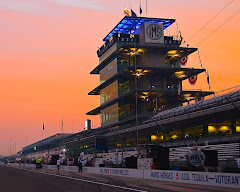The need to feel important is universal. When it is satisfied via rational and healthy means, it is called self-esteem. But sports fandom is inherently irrational. There is no evidence to suggest that the success of favored teams and competitors is in any way correlated with the relative social desirability of their fans.
Social psychologists refer to self-aggrandizement as
illusory superiority, a distorted opinion of one's social standing.
I happen to be a fan of the Indianapolis Colts. If the Colts should win the Super Bowl this season, then I will likely feel a sense of aggrandizement, as if I had something to do with the team's achievement. The illusion is one that I will be happy to indulge. The academic literature suggests that I am not alone.
The Jersey EffectDon't bother looking up the name of this particular affliction; I made it up.
The Jersey Effect is the term that I use to describe the inherent marketing advantage that is enjoyed by sports in which the participants represent either a community or an institution.
For example, I do not identify myself as an NFL fan, but rather as an Indianapolis Colts fan. The NFL does not have to compete for my allegiance because it is effectively an economic cartel, a monopolistic Not-for-Profit institution that operates for the benefit of its 32 member franchises. Economists have reached the same conclusion regarding Major League Baseball, the NBA, the NHL, and the NCAA.
Fans of sports that are sanctioned by those organizations tend to be devoted to a single member franchise or institution. They identify not with the economic institution, but rather with the Jersey of a single competitive entity. These fans are aggrandized when the guys (or gals) in their favorite jersey are successful.
In my opinion, there is but one example of The Jersey Effect in all of motorsports. That, of course, is the Prancing Horse of Scuderia Ferrari. A good number of Formula 1 fans are in fact Ferrari fans. That the vast majority of those fans will never own a Ferrari is evidence of the inherent irrationality of their fandom. Ferraris are the fast and sexy trophies of the elite. Scuderia Ferrari therefore offers the many who are not elite a parasocial connection to the few who are.
Of course the connection is an illusion. But that does not make it any less real to those who choose to indulge themselves.
The Sanctioning Body EffectCitizen John provided a comment in this space some time ago that really got me thinking. He noted that U.S. auto racing fans have traditionally demonstrated a strange and disproportionately strong connection to one sanctioning body or another. Having given the matter much thought, I tend to agree.
Might it be that the Sanctioning Body Effect is to racing what The Jersey Effect is to other sports? Is this the foundation upon which fans base their self-aggrandizement? I believe that a very compelling case can be made.
NASCARIt's where the Big Boys race. NASCAR Fan is cool because his sanctioning body is by far the most popular in the United States. It's where all of the best American drivers go to prove themselves. The cars are heavy, have skinny tires, and are difficult to drive. It's macho and nostalgic. The fact that the fancy-shmancy folks in New York and San Francisco don't like it is only further proof that it's the best.
ALMSIt's only for the smart, sophisticated and successful. ALMS Fan is cool because he likes what the socioeconomic winners like. NASCAR is the WWE and Wal-Mart. ALMS is the PGA and Saks. The cars are expensive, technologically advanced, and they race on road and street courses. Some events are even in major cities. It's for the hip, urban and successful. The fact that ALMS has a very small fan base is only further proof that it is superior. You can't be better than the crowd if you are the crowd, you know?
The IRL EffectIf there is such a thing as The IRL Effect, then we can say with certainty that it is not a source of aggrandizement. NASCAR has the best and most popular U.S. drivers and teams. Formula 1 has the best and most popular international drivers and teams. The cars are neither technologically interesting nor particularly difficult to drive. They are also essentially the same, the lone exception being that cars that are better financed are consistently faster than the others. The series appears to race wherever it can collect a check that is large enough to cover its costs. IndyCar is a relic, a once mighty warship that was decommissioned long ago.
The IRL Customer is aggrandized only at the Indianapolis 500, a storied institution that has managed to retain some luster despite its obvious decline in popularity. The market has made clear that the season championship is irrelevant. The few who continue to follow the sport do so primarily because they continue to associate themselves with the perception of a glorious past.
Aggrandizement: Core Benefit and Job to Get DoneIndyCar must become a source of aggrandizement to those who follow it. Watching an IndyCar race must indicate something - something that is irrationally great and desirable - about those who choose to either attend or watch on television. Every human being wants to feel that he or she is better than others. IndyCar needs to help some of them
get that job done.
We should note that, although it is true the hunger for aggrandizement is universal, it is also true that not all people are satisfied by the same foods. Therefore, IndyCar must choose. It can not be everything to everyone, but it must be something to someone. Serving one market will likely require that we not serve others.
IndyCar must assist customers with the job of self-aggrandizement. It must give them reason to feel bigger, more important, and superior in some way. But how?
Which product attributes will help IndyCar customers get the job of self-aggrandizement done?
I look forward to reading your comments.
Roggespierre






























